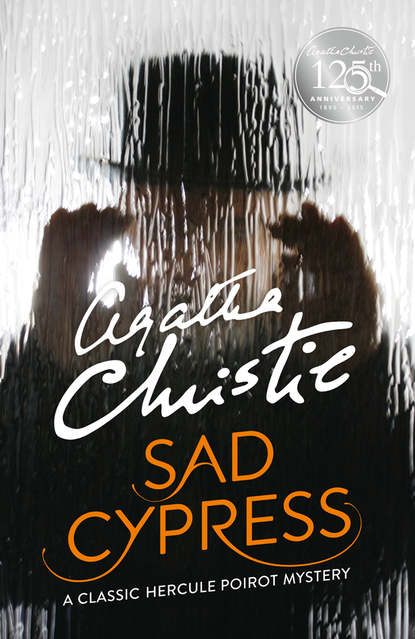По всем вопросам обращайтесь на: info@litportal.ru
(©) 2003-2025.
✖
Sad Cypress
Автор
Год написания книги
2019
Настройки чтения
Размер шрифта
Высота строк
Поля
‘Conked out?’
He stood for a moment thinking, then he said sharply:
‘Get me some boiling water.’
Nurse O’Brien was surprised and mystified, but true to the spirit of hospital training, hers not to reason why. If a doctor had told her to go and get the skin of an alligator she would have murmured automatically, ‘Yes, Doctor,’ and glided obediently from the room to tackle the problem.
Roderick Welman said:
‘Do you mean to say that my aunt died intestate—that she never made a will at all?’
Mr Seddon polished his eyeglasses. He said:
‘That seems to be the case.’
Roddy said:
‘But how extraordinary!’
Mr Seddon gave a deprecating cough.
‘Not so extraordinary as you might imagine. It happens oftener than you would think. There’s a kind of superstition about it. People will think they’ve got plenty of time. The mere fact of making a will seems to bring the possibility of death nearer to them. Very odd—but there it is!’
Roddy said:
‘Didn’t you ever—er—expostulate with her on the subject?’
Mr Seddon replied drily:
‘Frequently.’
‘And what did she say?’
Mr Seddon sighed.
‘The usual things. That there was plenty of time! That she didn’t intend to die just yet! That she hadn’t made up her mind definitely, exactly how she wished to dispose of her money!’
Elinor said:
‘But surely, after her first stroke—?’
Mr Seddon shook his head.
‘Oh, no, it was worse then. She wouldn’t hear the subject mentioned!’
Roddy said:
‘Surely that’s very odd?’
Mr Seddon said again:
‘Oh, no. Naturally, her illness made her much more nervous.’
Elinor said in a puzzled voice:
‘But she wanted to die…’
Polishing his eyeglasses, Mr Seddon said:
‘Ah, my dear Miss Elinor, the human mind is a very curious piece of mechanism. Mrs Welman may have thought she wanted to die; but side by side with that feeling there ran the hope that she would recover absolutely. And because of that hope, I think she felt that to make a will would be unlucky. It isn’t so much that she didn’t mean to make one, as that she was eternally putting it off.
‘You know,’ went on Mr Seddon, suddenly addressing Roddy in an almost personal manner, ‘how one puts off and avoids a thing that is distasteful—that you don’t want to face?’
Roddy flushed. He muttered:
‘Yes, I—I—yes, of course. I know what you mean.’
‘Exactly,’ said Mr Seddon. ‘Mrs Welman always meant to make a will, but tomorrow was always a better day to make it than today! She kept telling herself that there was plenty of time.’
Elinor said slowly:
‘So that’s why she was so upset last night—and in such a panic that you should be sent for…’
Mr Seddon replied:
‘Undoubtedly!’
Roddy said in a bewildered voice:
‘But what happens now?’
‘To Mrs Welman’s estate?’ The lawyer coughed. ‘Since Mrs Welman died intestate, all her property goes to her next of kin—that is, to Miss Elinor Carlisle.’
Elinor said slowly.
‘All to me?’
‘The Crown takes a certain percentage,’ Mr Seddon explained.
He went into details.
He ended:
‘There are no settlements or trusts. Mrs Welman’s money was hers absolutely to do with as she chose. It passes, therefore, straight to Miss Carlisle. Er—the death duties, I am afraid, will be somewhat heavy, but even after their payment, the fortune will still be a considerable one, and it is very well invested in sound gilt-edged securities.’
Elinor said:
‘But Roderick—’

















